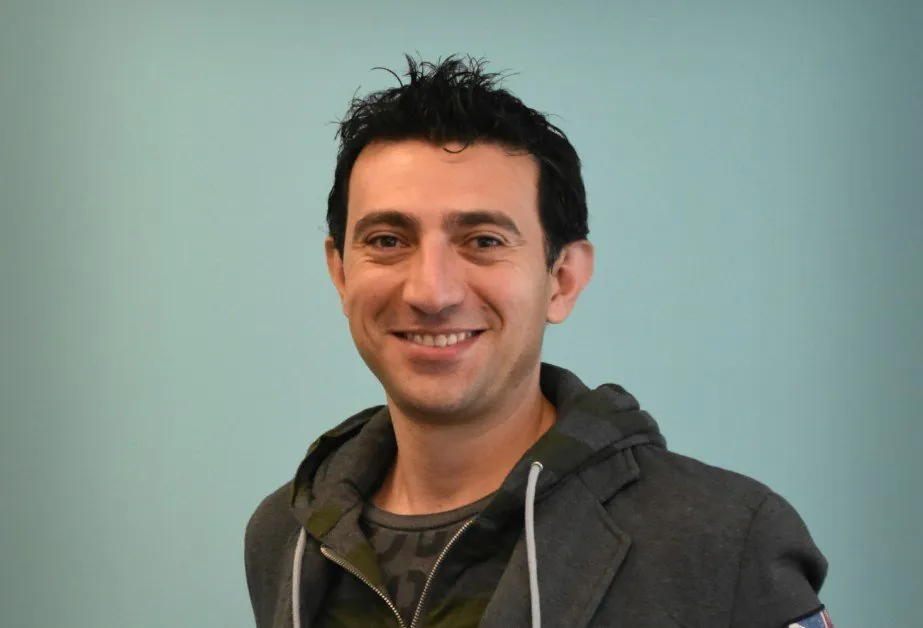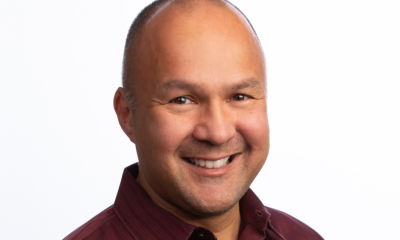Interviews
Halim Abbas, Chief AI Officer at Cognoa – Interview Series

Halim Abbas is the Chief AI Officer at Cognoa, he is an AI innovator and industry veteran who spearheaded world-class data science projects at game changing techs like eBay and Teradata. Cognoa is dedicated to creating an unparalleled standard of care in pediatric behavioral health that ensures equitable access to early intervention by delivering high quality products to improve lifelong outcomes for all children and families.
What initially attracted you to machine learning and data science?
I was always interested in computer programming as a child. Later in life, I gravitated towards the emerging field of machine learning because of the irresistible desire to operate on the fringe of research and explore the open challenges of what is possible to achieve through computational algorithms.
As a former Senior Research Scientist at Ebay you have a background in optimizing search result rankings for the Ebay platform. What are some of the fundamental lessons in machine learning that you learned from this experience?
At eBay, my team was tasked with creating the company’s first ever machine learning-powered search result ranking algorithm. With tens of millions of items for sale at any moment, and billions of search queries every day, the biggest technical challenge was to overcome the overwhelming scale.
Ultimately, I think my biggest takeaway from that experience was to keep an open mind about the definition of the goal itself. Turns out, if the ranking algorithm successfully presented the shopper with the best deals only, they were less likely to transact. They needed to also see the not-so-good deals in order to recognize the good deals as such. It took a data-driven approach to success as well as an open mind to realize that fact and adjust the strategy accordingly.
What are some of the conditions that are diagnosed at Cognoa?
Cognoa is a pediatric behavioral health company developing digital diagnostics and therapeutics. Our goal is to leverage technology to streamline pediatric healthcare and address the unmet needs in pediatric behavioral healthcare. We are starting with autism.
What are some of the challenges behind building a classifier system to diagnose autism and other conditions in children?
Aside from the fact that preschoolers are not the most cooperative of patients, one of the main challenges for us is what we call definitional noise. That is, trying to train AI algorithms to classify conditions when the clinical science around the boundaries of said conditions is still evolving. In some cases, human specialists might disagree among themselves about the diagnosis of one particular child, and the collective understanding of the underlying elements of a particular diagnosis is still an emerging science. For example, what used to be called Asperger's a few years ago is now considered within the umbrella of autism spectrum disorder (ASD), and the previously separate notions of attention deficit disorder (ADD) versus hyperactivity are now considered aspects of a unified diagnosis, attention deficit hyperactivity disorder (ADHD). Other emerging diagnostic classifications (like sensory processing disorder or SPD) are yet to make it to the Diagnostic and Statistical Manual.
To the data scientist, these subjective, shifting boundaries present interesting, sizable challenges to be overcome.
Cognoa built a 3-outcome diagnostic system. Why is the system designed this way?
Autism is a complex neurodevelopmental condition with a broad range of presentations and comorbidities.
We built a diagnosis aid to help primary care physicians to accurately and efficiently diagnose autism in children ages 18 through 72 months who are at risk for developmental delay based on a caregiver or parental or physician concern. Cognoa’s diagnosis aid works in a unique way by collecting and combining inputs from both caregivers or parents and physicians into a single solution in order to analyze them for predictive autism signals. Our diagnosis aid uses AI to evaluate all the inputs and — when information is sufficient — provides a positive or negative result for autism that the pediatrician utilizes in combination with the clinical presentation of the child to provide a diagnosis and direct appropriate next-steps-in-care.
In order to reduce the risk of false classifications, the algorithm has also been designed to provide an indeterminate output as a risk control measure to ensure the high predictive values of the “positive/negative for autism” outcomes, minimizing the likelihood of false negatives (since false negatives are the highest risk associated with device use). This procedure of abstaining from prediction when the model response indicates lower confidence is a standard method of risk control in machine learning algorithms.
Could you discuss how Cognoa overcomes parental bias when it comes to the type of data that is provided by the parents?
Great question. One of the major advantages of machine learning is that it is especially useful to overcome sources of noise and bias expected in input data. Parents’ accounts of their own children are expected to be subjective and biased, but based on very long windows of observation, whereas clinician reports are likely to be more objective, but also less informed due to short windows of observation.
By combining both input sets into a singular machine learning process, the machine learning algorithm is able to adapt to the complementary nature of those inputs, and learn patterns that can be used to leverage the best of both information sets into a single determination that is more reliable than each account individually.
What are some data science best practices that are used at Cognoa to avoid either racial or gender bias in data?
As a company, Cognoa is committed to building products for equitable access to care. We are aware that AI-based innovations have the potential to absorb and amplify inherent biases in society. For example, girls on average are diagnosed 1.5 years later than boys and one in four children under the age of 8 living with autism, most of them black or Hispanic, are not being diagnosed at all. This is due to the lack of access in our current system and because diagnosis has historically been skewed towards autism traits prevalent in white boys, who may present characteristics of autism differently than young girls and children who are non-white.
To address these existing biases, we deliberately and consciously built our technology to account for differences across gender, racial, ethnic, and socio-economic backgrounds. We wrote and adhere to a Socially Responsible AI Charter that guides our practices. Our AI algorithms have been deliberately developed and clinically-validated using patient record data belonging to thousands of boys and girls across geographies with diverse backgrounds, conditions, presentations, and comorbidities.
By referencing troves of external data points and utilizing the combined experiences of hundreds of physicians, simultaneously analyzing a variety of different human traits and features, Cognoa’s AI has the potential to help physicians tackle unconscious bias.
What are some of the therapeutic solutions that are offered at Cognoa?
Currently, Congoa does not have therapeutic solutions available for use. However, a number of solutions are in development at Cognoa, and it is clear that AI has immense potential to make therapeutic solutions more accessible and available to children with behavioural conditions.
Is there anything else that you would like to share about your work at Cognoa?
I never stayed in one job for as long as my current role within Cognoa. I think that’s because of the satisfaction I get from working on a problem that touches the lives of so many people at such a personal level. Helping parents take care of their children is about as noble a calling as one could ever hope for.
Thank you for the great interview, readers who wish to learn more should visit Cognoa.












